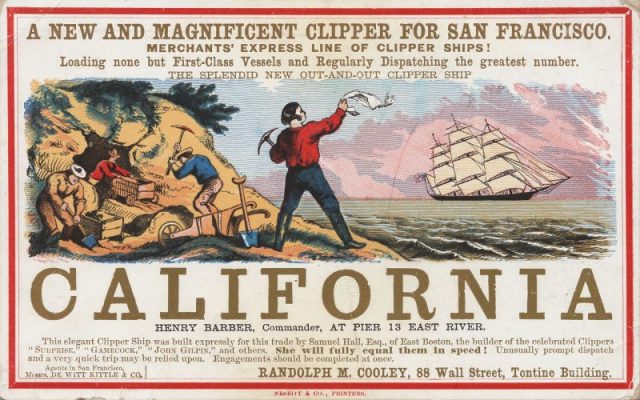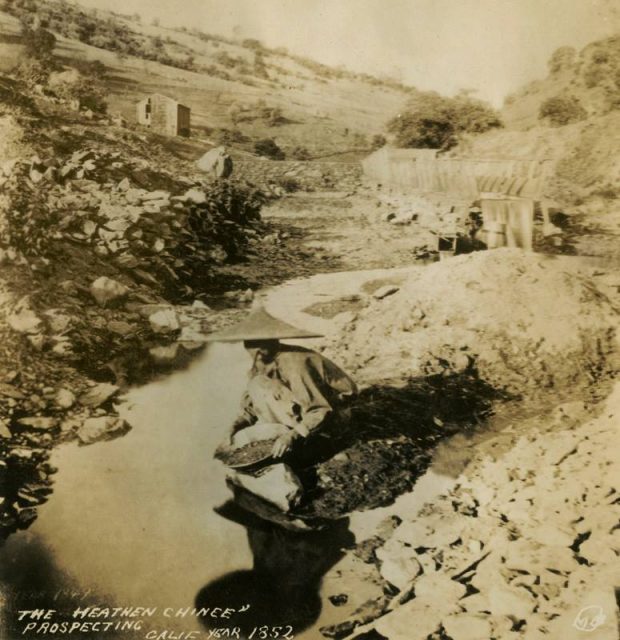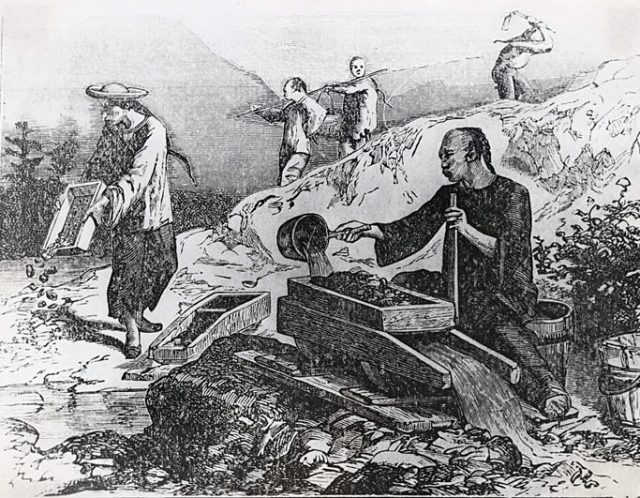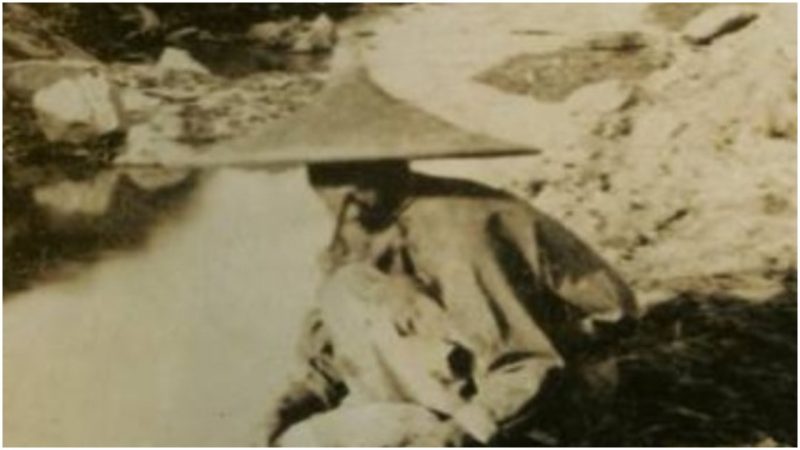Talk about laundering money! A popular folk tale from the Gold Rush era has it that a Chinese laundryman got rich not from panning for gold in the American River but from washing. In this apocryphal story, John John (a name white men commonly and indiscriminately called any Chinese man) washed white miners’ clothing, never charging a penny for his labors.
The men thought quiet John John was stupid, piled him up with loads of dirty duds, and picked up their neatly laundered, pressed, and folded clothing without paying him a speck of gold dust. But a year later, one of the miners saw John John sporting fine togs in Sacramento. He had allegedly washed enough gold out of the miners’ cuffs and shirttails to become supremely wealthy for the rest of his life.
Another oft-repeated tale of the era has it that a Chinese man tricked his white employer into paying him 18 salaries for the work of 10 of his countrymen, taking advantage of the white man’s discriminatory “all Chinese look alike” and having the same men come to work twice. In a myth mashup, some even claim the man behind both schemes was the same enterprising “John John.”

Like any enduring myth, this one grew from seeds of truth: The Chinese population boomed in California during the mid-1850s. Facing discrimination, many Chinese men took any work they could find. Doing laundry and not speaking English, they likely weren’t conversant with the white men, hence their seeming reticence. A white man’s hostility to the Chinese immigrant would make him resentful of any seeming success—to the point where he might create a story of a China laundryman stealing gold from his filthy trousers.
In 1849, when word came over the ocean that gold had been discovered in California, southeast China was roiled by war, drought, and famine. Men were lured by the promise of quick wealth. Within two years, 25,000 Chinese immigrants had left behind their homes for the grueling trip across the ocean to “gam saan,” or the Gold Mountain, to seek their fortunes. They were the first non-white population to arrive of their own free will, unlike enslaved African-Americans. Then there were the Native Americans, who were decimated on their own land by white men. Once the Chinese arrived, they faced intense discrimination: Chinese immigrants were not allowed to own property or become citizens, and they faced violent physical attacks and taxes levied specifically against them, the 1854 Foreign Miner’s Tax.

The Chinese immigrants banded together in tight-knit communities in the settlements springing up around California. (Many still exist as restaurant-lined Chinatowns.) By 1860, they contributed nearly half of California’s total revenue, thanks to the onerous gold-mining tax they shouldered. They laid the tracks for the transcontinental railroad that linked California to the East Coast, reclaimed swampland near Sacramento to create some of the world’s most bountiful farmlands, and built bridges, aqueducts, levees, and stone structures.
And they did the work white men considered lowly: as cooks, servants, gardeners, and laundrymen. In 1851, Wah Lee opened the first Chinese laundry in San Francisco, with a sign that read “Wash’ng and Iron’ng.” By 1880 two-thirds of San Francisco laundries were owned by the Chinese. But anti-Chinese sentiment was increasingly on the rise, and not just from hostile miners.

Newspapers and even churches decried the “yellow peril.” Antipathy was so high that in 1882, Congress passed the Chinese Exclusion Act, which barred immigration from China for 10 years, and which was extended for another 10 years in 1892, the only law ever to preclude immigration based on race.
So it seems unlikely that a Chinese laundryman actually got rich by washing gold out of miners’ clothing. But it does join the long list of other popular myths that have sprung up about how men sneaked gold out of the mines. According to an August 1935 issue of Popular Mechanics: in their mouths, in their beards, under grown-out fingernails, and inside their wooden legs.
